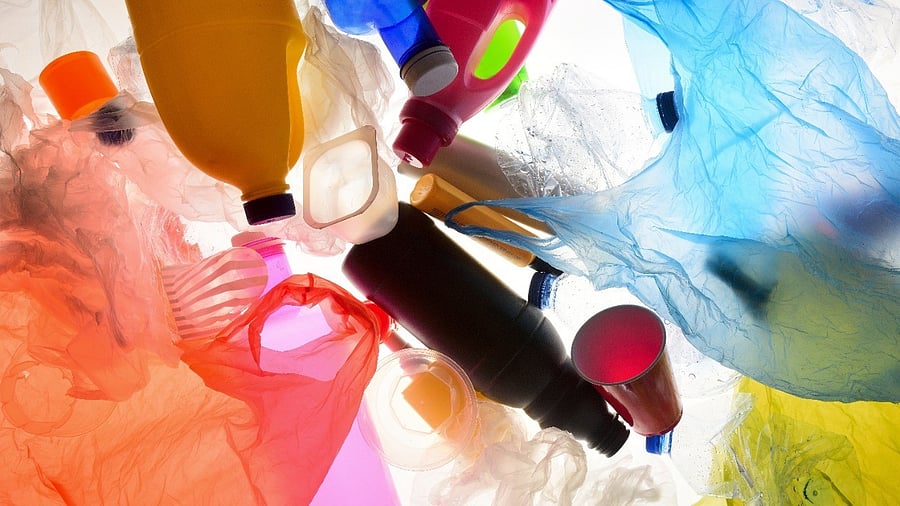
Representative image for plastic pollution.
Credit: iStock Photo
New Delhi: India on Wednesday proposed creating a “multilateral fund” to aid the developing world phase out polluting plastics by providing technology and financial assistance to low and middle-income countries.
This was suggested by participating officials at the ongoing fifth session of the Intergovernmental Negotiation Committee – a UN mechanism to thrash out a global treaty to prevent plastic pollution – in Busan, South Korea.
“The Indian proposal on financial mechanism for the new instrument mandates provision of financial and technical assistance, including transfer of technologies, to developing countries parties to enable their compliance with control measures agreed in the instrument,” a Union Environment Ministry official said.
The corpus will be similar to a multilateral fund linked to the Montreal Protocol, which for the last three decades has been supporting the developing block to phase out production and consumption of hazardous ozone depleting substances, besides phasing down the use of some of the potent greenhouse gases.
According to India’s proposal, compliance by the developing nations will be linked to the rich nations picking up the cost of transition.
“The proposed new dedicated fund will provide grant-based finance to developing countries. The developed countries will be mandated to replenish the fund on a periodic basis. It should also provide flexibility of accepting private funds based upon agreed modalities,” the official said.
The Indian proposal also includes plans for setting up of a subsidiary body, with equal representation of developed and developing countries, to make operational policies, guidelines and administrative arrangements, including the disbursement of funds.
The list of incremental costs covered by the new dedicated multilateral fund will be decided by the governing body of the new treaty while the proposed subsidiary body will look into the issues of technology transfer to developing countries.
The proposal is being debated at the ongoing multi-country negotiations to frame a global treaty in accordance with a decision taken by the UN Environment Assembly in 2022. This is the last meeting of the intergovernmental negotiation committee that will finalise the treaty.
“As many as 141 countries across the globe have banned or restricted some form of plastic products, indicating a high willingness among member states to take action. However, inconsistencies in regulations across countries or provinces and states have rendered the implementation of these bans more challenging than anticipated," said Sunita Narain, director general, Centre for Science and Environment, a Delhi-based think tank.
